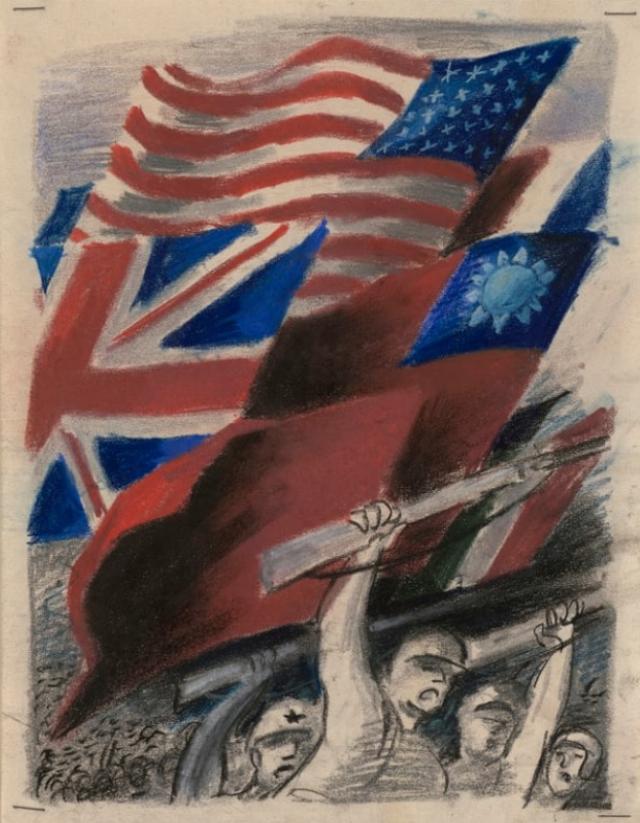Lend Lease and Bidenesque Confusion
Britain completed repaying its Lend-Lease obligations to the United States in 2006. There is no such thing as a free lunch. Yet the Lend-Lease program cost the U.S. approximately $50 Billion USD (equivalent to about $680 Billion USD today. No chump change. As monetarist PM Margaret Thatcher opined as she snatched the little milk bottles from children's hands in 1976: 'There is no such thing as a free school meal'. The original agreement for Lend-Lease assistance during World War II stated that the goods given would be leased rather than donated, with repayment obligations to be laid out after the war ended. Negotiations continued over the terms of the repayment, and payments were made over several decades, the final payment made in 2006.
The U.S. perceived the loans, as with the Marshall Plan for Germany (repaid in 1971) as existential. That is, Lend-Lease constitutes a type of symbiosis, creates dependencies, and allows the hegemonous power to acquire 'favors'. This, in Europe, amounted to air bases, diplomatic ties, and influence. The remit after 1945 was to keep the communist wolves from the door. It means the recipient is 'tied in' to the economic and political system of its donor. It works in a similar fashion for the Chinese; indebting south Asian nations with initially 'soft loans' but embedding their influence; it is 'Janus faced.'
Fast forward and nothing has changed. The G7 rolls out its 'game changing' Lend Lease program for Ukraine in 2022 and has just agreed a new tranche of $50 Billion USD. It is a 'loan' secured against the confiscation of Russian assets. Outgoing UK PM Rishi Sunak described the $50 Billion USD loan as 'game-changing'. Its a 'win-win' for the U.S. as the loans are guaranteed against Russian assets. Yet it places Europe in a precarious situation as Russia has 5000  nuclear missiles on its borders. The U.S., as usual, however, is playing the game 'away from home.’ The U.S. wants to have its cake and to eat it as well. Confiscated Russian assets, stored in Belgium's central depository 'Euroclear' assumes a $3 billion USD interest per year. By this method the U.S. can finance the war against Russia using Russia's own money.
nuclear missiles on its borders. The U.S., as usual, however, is playing the game 'away from home.’ The U.S. wants to have its cake and to eat it as well. Confiscated Russian assets, stored in Belgium's central depository 'Euroclear' assumes a $3 billion USD interest per year. By this method the U.S. can finance the war against Russia using Russia's own money.
The signal is the thing, as Hamlet opined, to catch the conscience of the king (or the Tsar in this case). More important perhaps is the 'signal' this gives to China and Russia. It is (or was) that the west can penalise you if you don't play the game. Yet the long game of the Chinese sees its own currency-backed regime to rival dollar hegemony. And why not -- since they own the resources and oil to decouple from the dollar system? It's more important than the aid. It is part of the attempt to carve out the respective 'grossraums' (or civilisational empires) of the U.S. and China. This is the de facto realpolitik at work and has little to do with assumptions about 'Liberal Democracy'. That is old hat in a world of resource determination. Vassal states are all the rage in the 21st century.
What could possibly go wrong? The U.S., forcing the European states to freeze Russian assets, is effectively attempting to force Russia’s hand through asset confiscation. Although a big 'ouch' for the Russian nomenklatura, it fails to recognise the sea-change in the shifting oceans of 'empire.' The nation state is being undermined by epoch changing shifts. From a discontented EU, the limits of the post -Westphalian (Treaty of Westphalia 1648) world are coming to the fore. China and Russia see the transitions, but the West, mired in internal liberal struggles, refuse to recant (excuse the pun) on the eclipse of the Enlightenment. Liberal democracy effectively rests in a gargantuan tension between 'Liberty' and 'Equality.' These tensions have never been resolved, despite welfare states, socialist governments, Democrats and Republicans, and revolutions. These tensions become debilitating, especially in the West, in which they have become suicidal. The U.S. still has its old ally in Britain. But for how long? Whilst continental Europe turns toward a new Napoleonic system, this leaves Britain and Brexit as the new 'sick man of Europe'. Both the U.S. and Britain plod along with no ethos and a liberal Bidenesque confusion.
Brian Patrick Bolger LSE, University of Liverpool. He has taught political philosophy and applied linguistics in Universities across Europe. His articles have appeared in the US, the UK, Italy, Canada and Germany in magazines such as 'The Independent', 'The Times', 'The American Spectator', 'Asian Affairs', 'Deliberatio', 'L'Indro Quotidiano Indipendente di Geopolitica', ’The National Interest’, ‘GeoPolitical Monitor’, ‘Merion West’, ‘Voegelin View’, 'The Montreal Review', ’The European Conservative’, ‘Visegrad Insight’, The Hungarian Review' ,’The Salisbury Review’, ‘The Village’, ‘New English Review’, ‘The Burkean’, ‘ ‘The Daily Globe’, ‘American Thinker’, ‘The Internationalist’, ‘Philosophy News’. His new book -- Nowhere Fast: Democracy and Identity in the Twenty First Century is published now by Ethics International Press. He is an adviser to several Think Tanks and Corporates on Geopolitical Issues.
Image: National Archives





